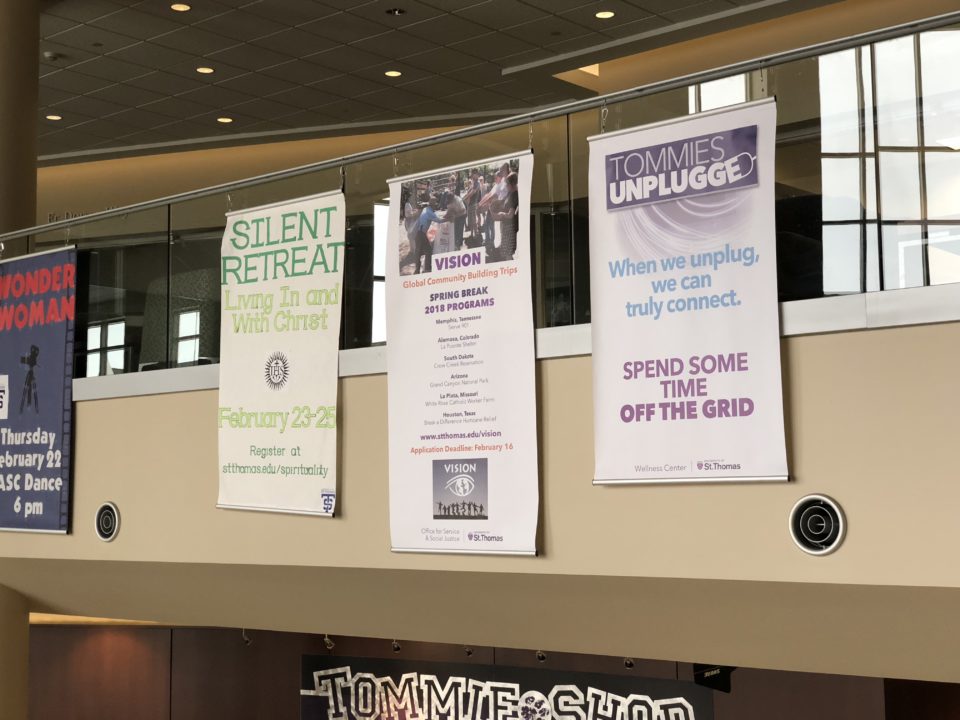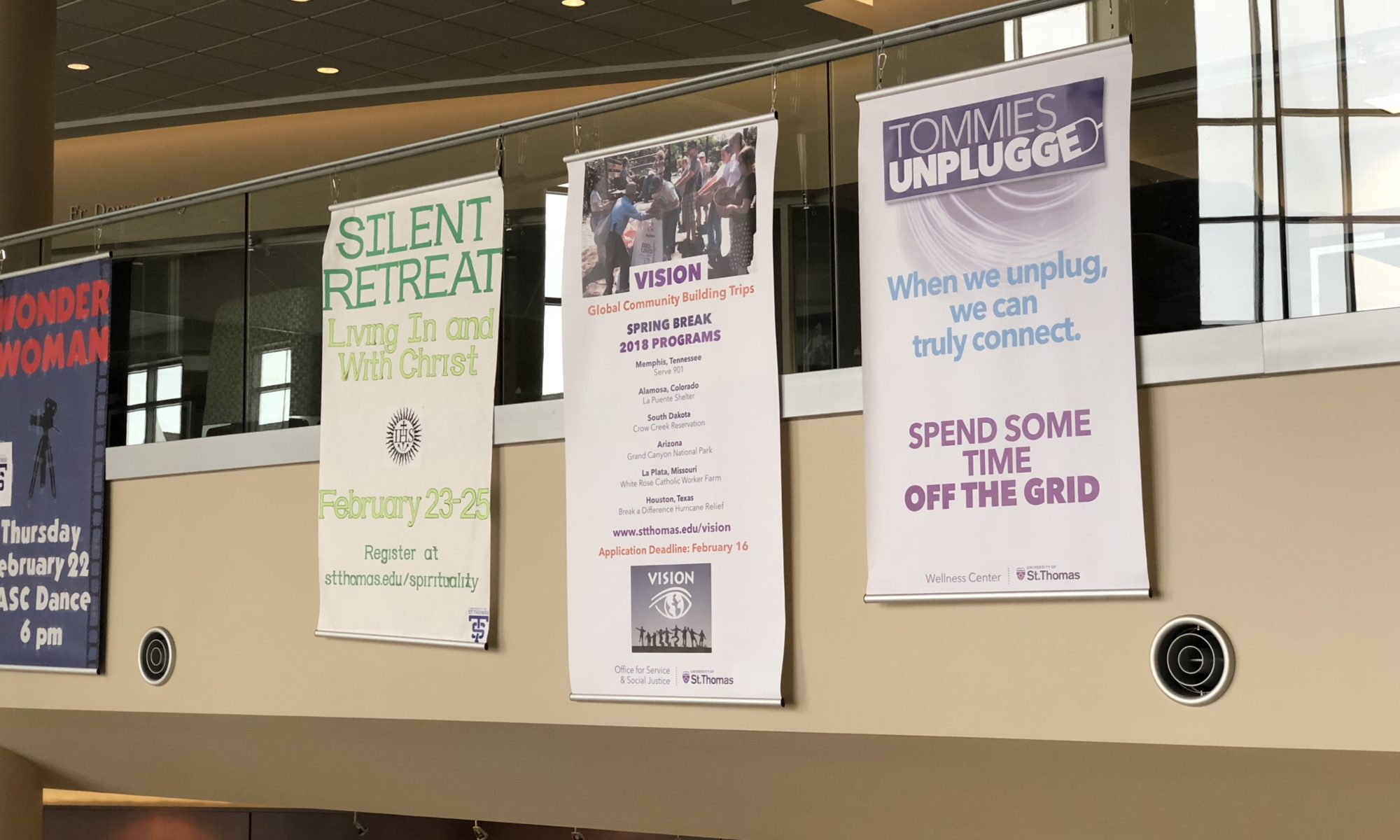A new campaign on campus was trying to get St. Thomas students to unplug from technology for nine hours straight in exchange for a free small drink from the Loft.
The “No Tech Challenge” on Feb. 17 was the first event of the second annual Technology Mindfulness Week, hosted by the Wellness Center.

Along with the challenge, other events for the week included a yoga lesson in the library, a convo hour designated to unplugging and relaxing in the Wellness Center, and an event teaching students how to minimize distractions on their devices.
Senior Chris Hornung started the Wellness Center’s Tommies Unplugged program last year, and he says this week is important because disconnecting helps students gain perspective.
“It’s important… to understand what it feels like to disconnect and be ourselves and not have to worry about the pings and dings of the notifications,” Hornung said.
Psychology professor Uta Wolfe agrees that the mindfulness week could create real change in how students interact with technology.
“It’s an important step towards having people put technology in (its) place and use it to their advantage rather than be used by it.”
Wolfe has taught courses on mindfulness.
“If we mindlessly use technology and become really compulsive about checking our phones and having them present at all times, there is a lot of research that it can impair our cognitive functions because it constantly competes with our attention,” Wolfe said.
The use of technology also encourages multitasking, Wolfe said. Attention is constantly switching back and forth between what’s on the screen and what the student is doing, which can lead to lower performance or concentration in situations such as being in class.
“This constant invitation to multitask really takes energy away from stuff that you probably should be attending to right now, even if you’re not actively engaging with your smartphone,” Wolfe said.
Practicing mindfulness can help students be more aware of those urges from technology.
“Mindfulness is important to help students, and just people in general,” Hornung said. “We kind of forget about just being in the moment a lot of times, and just coming to that understanding can be really helpful with mitigating stress and anxiety and putting things into perspective.”
On Feb. 18, junior Katie Harris instructed yoga for the “Yoga in the Library” event as part of Technology Mindfulness Week. She feels technology plays a big role in her life — constantly checking emails, social media and more.
“I feel like it’s way too convenient to have notifications popping up all of the time,” Harris said. “You just really get sucked in.”
Harris, Hornung and Wolfe all agree that students can become more mindful with a few simple changes. These include setting timers to limit screen time use, downloading mindfulness apps and practicing meditation.
“Technology can either impede or improve the way that we spend our time in college,” Hornung said. “Trying to understand the different ways, good or bad, that we can use technology (helps) mitigate that relationship.”
Samantha HoangLong can be reached at hoan1058@stthomas.edu.



